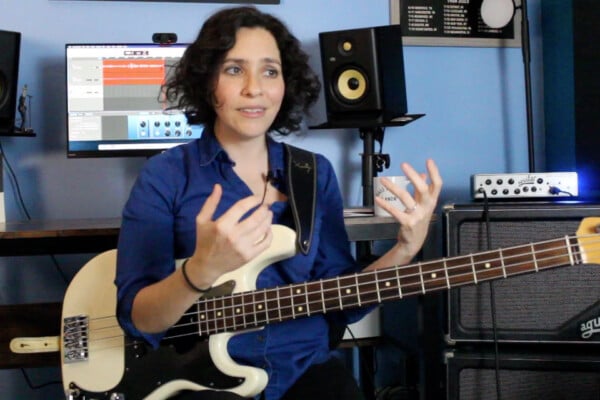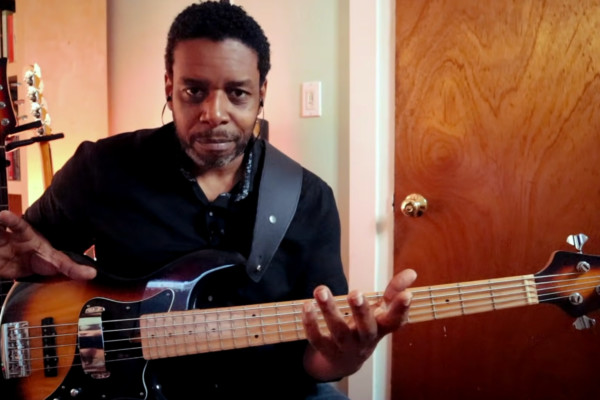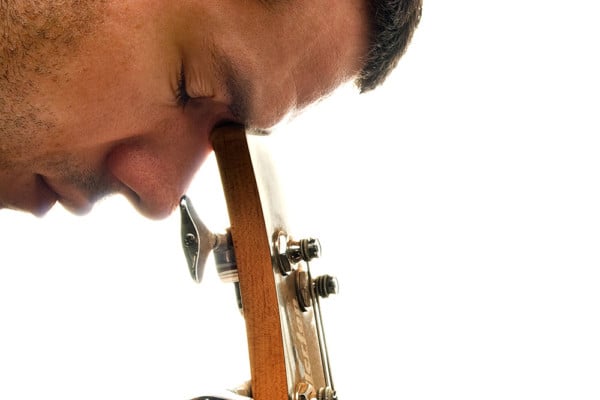Should I Learn Older Music To Understand Newer Music?

Q: I struggled with asking if I HAVE to learn trad jazz or if I SHOULD learn it, so take this question as both. And just as a disclaimer, I’m using “trad jazz” to mean the standards and the jazz being played predominantly from the ’20s to the ’60s and the styles that encompassed.
I’ve been led by a lot of people to think that, even if you’re into more funky fusion styles of jazz, in order to play more modern stuff proficiently you should learn to walk, transcribe, and learn standards, etc., etc. And even if you aren’t playing that kind of music the discipline and technical gains will help you as a player, which I have no doubt is true. But if I am definitely most interested in more funk/fusion type music and I rarely ever listen to traditional jazz how important do you think it is it to practice this stuff? This is something I’ve wrestled with for a long time. I’ve jumped into learning to walk and solo over standard changes but always found myself jumping out after a while because it just doesn’t relate to what I like to play and the music I hear and like to write. And I don’t listen to it that much either which makes it more difficult.
If I had 5 hours a day to practice, this probably wouldn’t be an issue. I could fit in many different topics to practice. However, real life limits the number of hours I have to practice. So I guess this boils down to wondering if I should be spending my time in the shed on things that are really not totally related to what I like to play just for the knowledge I will gain on the instrument and for the technical and overall musical outcome it will provide.
Maybe another way to sum it up and put it is this: Should I be learning the bass lines on Herbie Hancock’s Maiden Voyage album to help me better play and write the type of stuff he was doing with the Headhunters, which I’m much more into musically?
A: This is also something that I struggled with along my path. Honestly, I never really liked much jazz before 1970 (I can hear my trad-jazz buddies groaning already). Of course, I recognize the proficiency and evolutionary breakthrough like nature of the music, I just never liked listening to it. However, I did use that music to more fully explore how to play through changes. There is no doubt that practicing walking lines and improvisations over those tunes will help you to develop by leaps and bounds as a bassist, but I wouldn’t say that it’s the only way.
I have learned to love playing the music even though I still don’t really listen to it. I also had to get over the fact that I always felt like I was playing the wrong instrument (electric bass) and had to learn to accept the sound of my instrument within the context of that music.
I hear a lot of jazz guys say that you can’t play jazz until you understand the blues. I hear a lot of fusion guys say that you can’t play fusion until you understand more traditional forms of jazz. I’m sure that the perspective goes on and on with each generation saying that you must understand where they came from in order to understand their music. I don’t entirely buy it, although I also think that it is most certainly one of the ways to get there (and a tried and true way, at that). It’s not untrue, but it’s not entirely exclusive either.
I would encourage you to keep dipping your toes in that “trad” pool, as it took me years to really appreciate what it had to offer but I also don’t believe that you can force anybody to exclusively practice something they don’t enjoy and expect great results. You have to be really into what you’re learning in order to pursue it passionately and it takes a bit of passion to really go much further than the superficial with most genres. It’s hard to “dabble” in jazz.
Personally, I tried to focus on the things that related to what I actually listened to and wanted to play. I needed to understand chord changes and how to navigate them so I used standards as the vehicle, but often changed the style of my approach a bit to have more fun with it. I also thought it worth exploring walking lines so I came up with my own exercises to explore that. I didn’t bother transcribing a hundred Paul Chambers bass lines but rather looked for my own path to it.
Although I eventually came to really appreciate the music and, while I still don’t really listen to that type of jazz, I do have more fun getting into certain recordings in the shed and exploring what Paul Chambers and others were doing. That may be an evolutionary step that you’ll get to if you give it a chance. Or not. Who’s to say?
Long story short… Do YOU. Don’t worry about what anybody says if it just doesn’t resonate with you. Keep yourself engaged in the process, excited to learn what you want to know, and having fun. The results are inevitable!
Here is a huge “however”. HOWEVER…
Know that the best way to mature and grow as a musician is to play music with other people, especially on the gig. If you can play standards, you can work more, which means that you can learn more. My biggest obstacle has been that I never learned any tunes. I don’t know a single standard by heart. I have to have my iPad or a Real Book in front of me, or I’m toast. This has cost me gigs! Not many, because I can read very well and can also play naturally while reading, but still. It is a crutch.
If you can’t at least sound convincing in a more traditional setting, by virtue of being familiar with the style and approaches, turnarounds, etc., you will not work as much. Fusion gigs are fairly rare. Funk gigs, sure, but if you want to play any style of jazz, being able to convincingly walk and solo over “Stella by Starlight”, for example, will go a long way towards being a working musician on the scene.
It sounds like you recognize that working through that stuff can only make you better, so it’s up to you. There is no “one way”, it’s just a matter of what your goals are, who you want to be (musically) and what the best path to get there is FOR YOU.
Either way, happy shedding!
Have a question for Damian Erskine? Send it to [email protected]. Check out Damian’s instructional books, Right Hand Drive and The Improviser’s Path.



